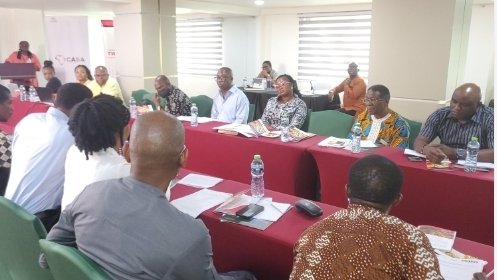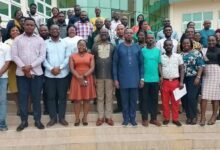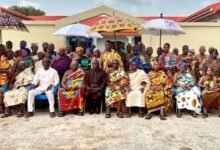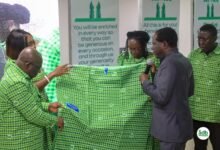SARW, TWN introduces SLAPP toolkit to CSOs in Ghana

An Anti- Strategic Lawsuit Against Public Participation (SLAPP) toolkit has been developed by the Southern Africa Resource Watch (SARW), to enable civil society organisations (CSOs) respond to SLAPP cases.
SLAPP is a lawsuit that is intended to censor, intimidate, and silence critics by burdening them with the cost of a legal defence until they abandon their criticism or opposition.
The toolkit developed in collaboration with Third World Network-Africa (TWN) and Trust Africa includes a range of resources, guidance, and tools designed to support environmental rights defenders, particularly women defenders, in their advocacy efforts.
It also comprised of practical strategies for identifying and responding to SLAPP suits, case studies illustrating successful resistance tactics, legal resources outlining relevant laws, raising awareness, and mobilising effort.
At a two-day workshop in Accra, last Thursday, to train the CSOs on the SLAPP suit, the Executive Director, SARW, said SLAPP suits were generally considered an abuse of the legal system and designed to stifle free speech and public participation.
He said it was often filed against individuals or groups who speak out on matters of public interest and could have effect on freedom of expression as well as being detrimental to democratic processes.
He said the prevalence of SLAPP suits differs from country to country, amidst such prevalence or non-thereof, countries or states international legal standards obligate states and corporations to promote fundamental human rights and freedoms.
“As such, states are obligated to facilitate the exercise of the rights of freedom of expression, peaceful assembly and association which includes among others, the duty to establish and maintain an enabling environment for civil society to operate freely,” he added.
The Coordinator of TWN-Africa, Dr Yao Graham, said the toolkit would equip defenders with the knowledge and tools needed to effectively challenge legal repression and advance environmental justice.
He said it would also empower the CSOs to build resistance to the SLAPP suit in protecting the environmental and social rights of community members.
Ms Thui Zulu, Advocacy and Research Officer, Centre for Applied Legal Services, for her part, advised CSOs to seek legal representation when faced with a SLAPP suit as part of their practical remedies.
In addition to the legal representation, she said it was important for CSOs to document all communications and interactions related to the SLAPP suit.
“In order to deal with the growing SLAPP suit in Africa, it is important that everyone knows their rights. The Constitutions of the different countries provide for legal remedies in instances where individual rights are violated,” she stated.
BY VIVIAN ARTHUR







